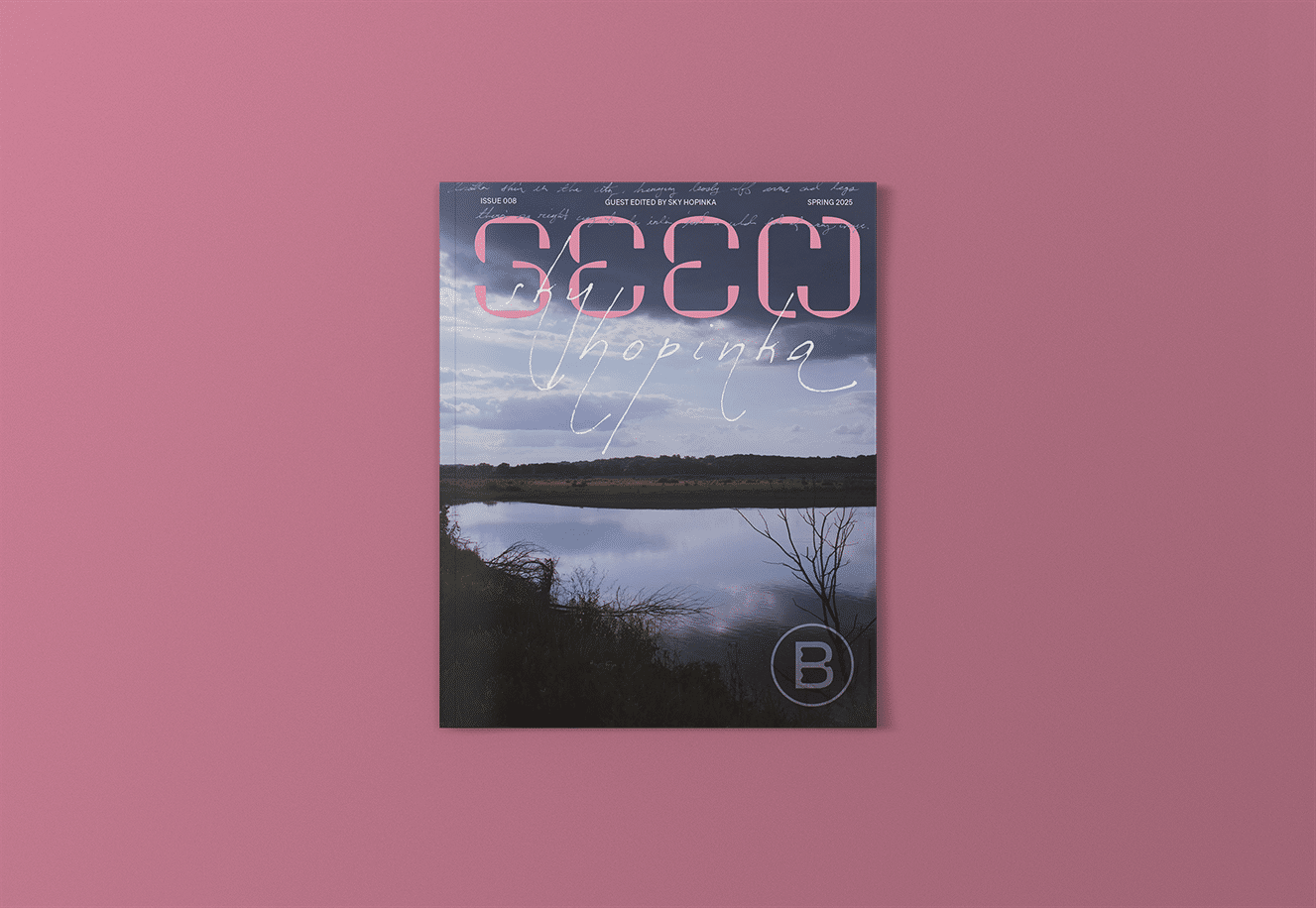In Najha Zigbi-Johnson’s piece on the photography and art of Malcolm X, she reflects on what she’s learned from Malcolm and how his art “is a way of assembling a world not yet realized and a way of contending with the depravity of neocolonialism, baked into our present material.” Similarly, Yasmine El Rashidi delves into what it is to have a timeless cinematic style in a time of political upheaval. She writes about the films of Shadi Abdel Salam, and I keep coming back to a question she asks: “How can one manipulate style and form to convey the brutality of history and the stripping away of agency while still preserving artistic integrity and not letting the political overpower?”

Issue 008 Spring 2025 From the Editor
Letter from the Editor
by Heidi SamanImage by lan Keefe.
We began thinking of the contents of this issue prior to the 2024 election. With every topic proposed, the same underlying question emerged—how are we finding peace in the chaos of turbulent times? Little did we know how much more chaotic and turbulent it would get. As the work we do at BlackStar is being threatened and undermined, I take refuge in the writers and artists we feature in 008, who are showing us how to respond to this moment. Filmmaker Mati Diop talks with Beandrea July about Diop’s film Dahomey (2024), which follows the repatriation of 26 royal treasures from a museum in France to their home in Benin. As Diop did with her previous film, Atlantics (2019), she expands the meaning of genre, narrative, and documentary into what July describes as “part science fiction and part ghost story.”

I’m proud to say our guest editor, visual artist, filmmaker, writer, and photographer Sky Hopinka, is no stranger to BlackStar or Seen. In interviews, I’ve heard Sky describe himself as a shy and anxious person, but you would never know this from his work. His films feel incredibly attuned to how we make sense of our lives, from the quotidian to the surreal. For Sky, the container in which we tell our stories tells us as much about our stories as the stories themselves. In his essay “Echoes in the Flowing Frame,” he writes, “Stories unfold in time, yet they also stretch beyond it.” I take comfort in that idea. As propaganda and misinformation flood our feeds, his words remind me that the story is always being told, and this moment, as difficult and violent as it is, is not the end.
This issue would not be what it is without the tireless work of our editors Camille Acker, Kavita Rajanna, Yasmine Espert, and Shauna Swartz. When I see their corrections and edits, I feel their love and care and I’m so grateful for it. I continue to be mesmerized by our art director Raquel Hazell’s vision for this journal. I thank her for bringing the words of our writers to life so beautifully.
As always, a big thanks to Maori Karmael Holmes, Imran Siddiquee, Leo Brooks, and Autumn Faith Valdez. And a special thanks to our new associate editor, Akili Z. Davis, whose organization and passion made this issue possible.